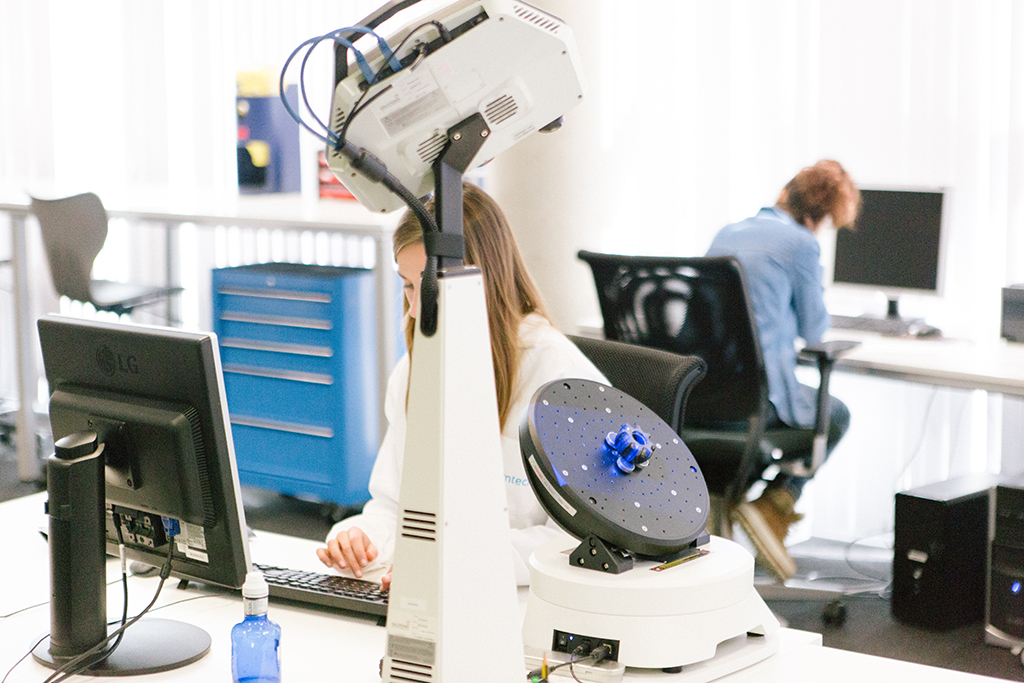Vicomtech participates in AIRSAFE: 4.0 Solutions for indoor air quality
New technological solutions for optimizing indoor air quality and minimizing airborne transmission of pathogens. SARS-Cov-2 has shown the importance of having adequate monitoring, ventilation and air conditioning systems that guarantee the safety of people indoors.

26.11.2021
The AIRSAFE project aims to optimize air conditioning facilities for environmental and operational indicators and provide new tools to improve indoor air quality and its impact on health. New innovative solutions will be developed in the field of sensors, equipment and management, operation & maintenance tools for ventilation and air conditioning installations.
Using Big Data and the opportunities derived from Artificial Intelligence applied to air conditioning, AIRSAFE will allow companies operating in the sector in the Basque Country to increase their competitiveness in a demanding market, creating new products and services based on digitization.
Vicomtech will participate in the development of software tools for monitoring and predicting air quality in closed spaces. To do this, it will carry out R + D + i tasks aimed at the development of AI (Artificial Intelligence) models based on data, Visual Analytics modules and tools for simulation and optimization of air conditioning systems and equipment, through its teams of Research on Digital Health and Data Intelligence.
The results of AIRSAFE will boost commercial and operating activities, with a potential increase in average business volume of 9% per year in the six years after the end of the project. The consortium companies consider the project as a key opportunity for the development of Products, Services and Advanced Solutions for Air Conditioning and Smart Industry zero kilometer, developed entirely in the Basque Country.
Indoor air quality and benefits for the Basque Industry
Given that it is estimated that in advanced countries people spend an average of 90% of their time indoors, it is a highly relevant issue in terms of their well-being.
An update of a global and transparent study of the number of annual deaths due to environmental factors was carried out in 2016. This study concluded that 23% of deaths (12.6 million people) and 22% of DALY (number of years lost due to illness, disability or premature death) were due to environmental factors. An OECD study estimates that the annual cost of environmental pollution constitutes 0.3% of gross domestic product, including absenteeism and sickness costs in this figure. It is known to all that air pollution affects health, and that it can cause certain respiratory diseases. But what is not so well known is that certain pollutants can negatively influence our nervous system, reducing our cognitive capacity, and, consequently, our professional or academic performance.
In addition, to all this, the situation created by the outbreak of the SARS-CoV-2 pandemic is added. All the investigations carried out confirm that it is spread through the exhalation of very small respiratory droplets and particles that contain the virus and can later be inhaled by other people or deposited on their eyes, nose or mouth (Center for the Control and Prevention of Diseases), being the interior spaces the most dangerous for the spread, thus demonstrating once again the need for new technologies that allow us to solve the problems derived from the airborne transmission of pathogens.
Clean air is essential for our health, as well as that of the environment. That is why the EU establishes rules to avoid the accumulation of excessive concentrations of pollution. After verifying that air pollution is more detrimental to the health of citizens than was believed years ago, the WHO decided several months ago to issue new air quality recommendations that are stricter than those in force until now, which lower most of the levels recommended pollutants in the air compared to those set in 2005.
As a fundamental part and within the framework of the “European Green Deal”, the EU is reviewing its standards and norms in relation to air quality to better adjust them to the recommendations of the World Health Organization.
Consortium
With the support of the HAZITEK program of the Department of Economic Development, Sustainability and Environment of the Basque Government, the consortium that makes up the AIRSAFE project seeks to offer society safe and healthy environments in areas of daily use; public buildings, hospitals, schools ... etc, through new technological solutions for the optimization of air quality in indoor spaces.
Led by AIRLAN, GIROA, FIDEGAS, WATTIO, INGETEK, ZYLK, BIOTALDE and APA participate. On the other hand, the consortium of companies will have the technological support of Vicomtech, CEIT, Matia Instituto, and Aclima, Basque Environment Cluster.
Furthermore, Fundación Matia and Ikastolen Elkartea will participate as direct representatives of the selected fields of application to validate the solutions developed during the project.
Download related information: Imagen_proceso.png - PNG 0.079 MB /








